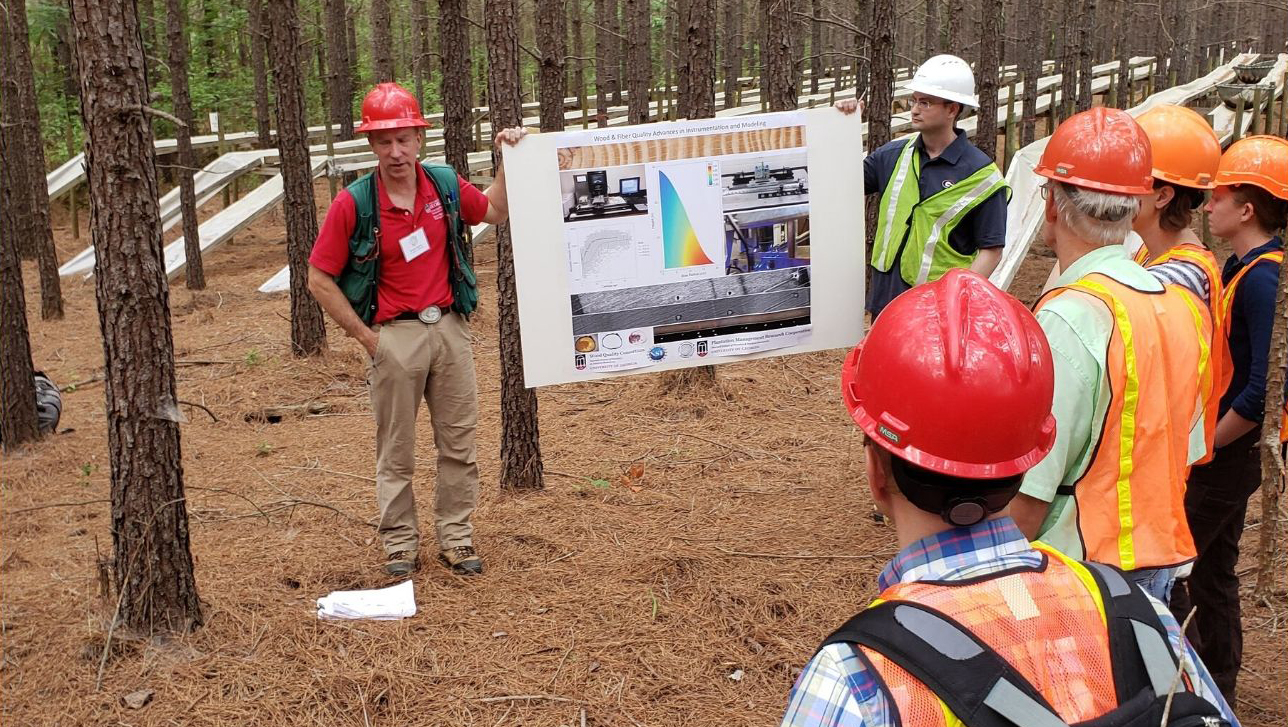
CAFS awarded 5-year, $500,000 NSF grant
University of Maine’s Leadership of National Science Foundation’s Center for Advanced Forestry Systems
For over 10 years and counting, the Center for Advanced Forestry Systems (CAFS), a National Science Foundation (NSF) Industry/University Cooperative Research Center, has successfully provided the critical structure and resources needed for nationally relevant scientific collaboration in the various and emerging areas of applied forest science pertinent to the forest industry in the US. CAFS was initially established in 2007 to address a broad spectrum of research areas related to forest management and processing including: growth and yield, stand and plantation management, wood quality, soils and nutrition, genetics and biotechnology, modeling, and remote sensing. CAFS has continued to evolve since its original inception as the issues change, its membership has increased, and applicable technology has become more available.
The University of Maine became the lead site for CAFS in 2016 and, with six partner university sites, including North Carolina State University, Oregon State University, University of Georgia, Purdue University, University of Idaho, and University of Washington, was successful in guiding the Center to the final segment of three, five-year phases. In December, CAFS institutions were each awarded a 5-year, $500,000 NSF grant for Phase III; projects in this next stage will address national and regional technological challenges with research questions aimed at specific multiple spatial and temporal scales – including molecular, cellular, individual-tree, stand and ecosystem levels.
Forests provide a major part of the Earth’s oxygen; remove and store a substantial amount of atmospheric CO2; provide habitats for much of the world’s plants, animals, and microorganisms; serve as feedstock for bioenergy, biofuels, and biomaterials; and are a source of economic opportunity. In the U.S., over 2.7 million jobs depend on forests, representing a payroll of over $110 billion. This is particularly relevant to Maine, where forests and their associated industry sequester over 75 percent of the state’s annual fossil fuel emissions, create 1 in 20 jobs, and have a direct economic impact of $8-10 billion – one of the highest relative contributions to a state’s gross domestic product.
CAFS’ interdisciplinary research will continue to support the forest industry in sustaining healthy forests with newly developed decision-support tools, remote sensing, and a focus on precision forest management. CAFS scientists and industry will work closely together with new emerging technology, such as unmanned aerial vehicles (UAVs) and Light Detection and Ranging (LiDAR), to better measure, monitor and manage forests, particularly in regard to the variety of issues that forests face, such as climate change, wildfires and invasive pests.
CAFS Director and University of Maine Professor of Forest Biometrics & Modeling, Aaron Weiskittel, who led the successful Phase III proposals, affirms: “This is a rather exciting and timely announcement from NSF given the transitions that are currently happening in the forest industry both in Maine and nationally. This new funding provides the opportunity for both universities and forest industry to come together to address relevant national issues that influence long-term outcomes. Given its importance, I fully believe CAFS will continue to impact our state and beyond for years to come.”
For more information: https://crsf.umaine.edu/forest-research/cafs/
